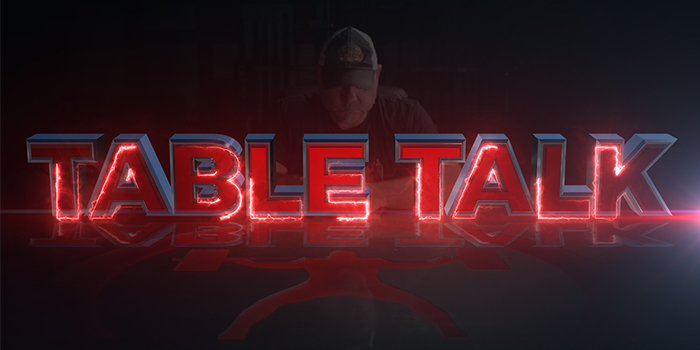
It is no secret that powerlifters find motivation in many different ways. Go to any powerlifting meet and you'll see it: One lifter sits quietly waiting in the corner, takes the platform without saying a word, and hits his lift. Meanwhile, another competitor paces the room grunting and screams with rage as he steps under the bar. The difference between these two lifters and their rituals is a matter of personality; a lifter's personality often determines the mental state needed for optimal performance.
Should these personality differences also impact the training program? Should a training program be altered based on a lifter's personality? For this week's Table Talk, Dave responds to a question about this topic:
"What would be your programming recommendation for these three personality types when training for strength?
1. A meathead that always wants to go heavy.
2. A workhorse that always wants to do volume.
3. A tech geek that strives for perfect technique."
First, Dave says there aren't three personality types in powerlifting — there are far more. Every lifter has a unique personality, and trying to lump them together is a mistake. Even with all these personalities, however, Dave says the training won't change much. No matter what personality a lifter has, the training program should be based on their strengths, weaknesses, and the date of the meet. Any changes to that program will happen because of what you see within the training — maybe weak points will develop or you'll find that the lifter is struggling to recover. These things will be based on performance in training and not personality.
What will change, however, is how you communicate with the lifter. The tech geek or intellectual, for instance, is always going to want to hear why. He's going to want to know the purpose of everything in the program and what each aspect of training is meant to accomplish. Giving them a program and cuing them during their session won't be enough, but if you can articulate to them why a certain part of the program is important, they'll be as dedicated as anyone.
The meathead, on the other hand, doesn't give a shit why. He just wants to push hard, work harder, and lift big weights. He doesn't need a long, detailed explanation of the body's response to training or the history of a method that is used in the program. For these lifters, you need to give them the simplest, most direct advice to follow.
MORE: Mental Characteristics of Successful Powerlifters
All of the other personalities in powerlifting will fall somewhere between these two. There will be variations and many other minor differences, but most people will be in the middle somewhere.
Dave says that the main point is that you have to learn how to communicate. If you're training someone in person, you should be able to detect their readiness through things as small as body language. You should be paying close attention to every part of the session so that you know if a warm-up set looks different than last week or an adjustment needs made. Then when you make that adjustment, you deliver the advice in a way that works best for the lifter.
As a coach, you should constantly be looking for what's fucked up so you can address it. That final part—how you address it—is what will vary from person to person. The message shouldn't change, but the delivery can and should. It is your job to be consistent in what you tell a client while also finding a way to get through to them.










